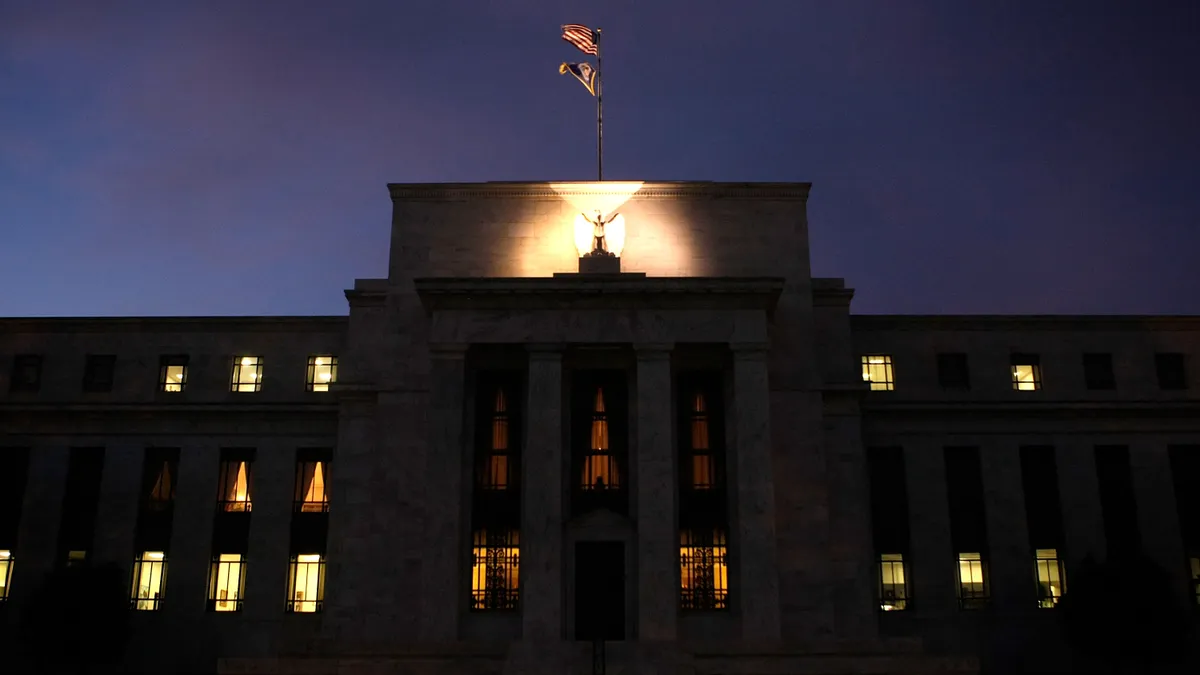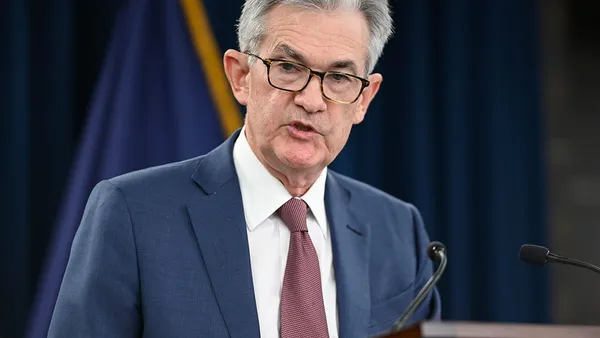Dive Brief:
- Although CFOs remained cautiously optimistic, their first quarter outlook for 2023 brightened from the previous quarter, with 40% of CFOs saying now is a good time to be taking greater risks, up from 29% of finance leaders last quarter, according to Deloitte’s latest CFO Signals Survey.
- Meanwhile, just over half (54%) of surveyed CFOs — from large and influential North American companies — expect macroeconomic conditions to improve in a year, up measurably from 29% in the fourth quarter, the survey found.
- The survey data was collected in February, ahead of Silicon Valley Bank’s swift collapse on Friday which has left CFOs scrambling to assess their exposure to the developing banking turmoil and sparked concerns about the bank liquidity.
Dive Insight:
Looking back on the past three years, there have been a number of shocks to the system for the CFOs and finance leaders of the world, said Steve Gallucci national managing partner for the US CFO Program at Deloitte, in an interview. The start of the COVID-19 pandemic back in 2020, geopolitical turmoil with Russia and Ukraine and the zero COVID policy in China, as well as rising interest rates environment have all contributed to a less optimistic CFO, but also a more resilient one as well, he said.
“We're going to continue to get those shocks clearly, over the last week we had our fair share of shocks, but where I think we're seeing a sense of resilience from CFOs that things are going to continue to be bumpy, and they’re continuing to build more resilience into practices,” said Gallucci
Even CFOs whose organizations that had no ties to SVB have still had to field calls and handle the repercussions, with investors and shareholders looking to confirm the lack of exposure and get feedback. This may be the biggest story for finance leaders since COVID hit, CFO Dive previously reported.
“The shocks that we've seen over the last three years, if you will start with the pandemic, we're going to continue to see those, we're going to continue to see issues that will challenge CFOs and enterprises more broadly,” said Gallucci. “How do you get better data to make better decisions? I think we're gonna continue to see that being a theme,” he said.
More than half (54%) of CFOs also pointed to “inadequate technologies/systems, immature capabilities, and lack of experienced talent as their greatest roadblocks in driving data to insights,” according to the survey.
“What CFOs realize is that their historical way of planning didn't serve them very well — look at historical data and trends from your own company, and then try to use that as projections for the future. And then when you have a pandemic, or you know, major, major shocks to the system, you need to have a much more resilient way to plan and the only way to be able to do that would be to get better data and then take advantage of emerging technologies,” said Gallucci.
Despite a somewhat more positive outlook for the year ahead, CFOs are still cautiously optimistic about inflation easing, especially with the possibility of more rate hikes in the near future, the survey said.
However, Federal Reserve Chairman Jerome Powell could be forced to choose what situation is in more dire need of the central bank’s focus — the bank failures or fighting high inflation, The Wall Street Journal reported.
Investors in interest-rate futures markets saw a greater than one-in-three chance Monday that the Fed meeting next week would bring steady rates, according to the CME Group.
Deloitte’s comes on the heels of the Fed boosting the benchmark federal-funds rate by a quarter point to a range between 4.5% and 4.75% in February. This rate hike followed increases of a larger half point in December and 0.75 point in November.













